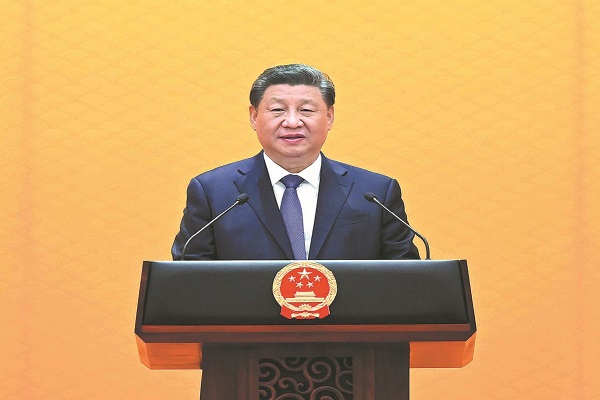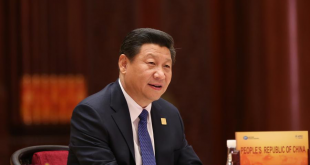Published: August 07,2022

Escalating pockets of regional tensions and their impacts beyond the immediate centre of conflict is generating and inflaming security threats across countries. For example, the immediate consequences of the collapse of the Colonel Muammar Gadhafi government in Libya is the flow of light weapons and military instructors which has fed insurgencies in the Sahel in West Africa, with Nigeria as a principal victim where extremist insurgency has mutated to violent criminal activities of banditry and kidnapping.
The violent overthrow of the legitimate government of Libya in 2011, with the active connivance of the U.S-led North Atlantic Treaty Organization, (NATO) and subsequent assassination of its leader, Colonel Gadhafi, was the crucial enabler to the chain of destructive insurgencies, banditries and other forms of venal criminal activities that has engulfed the Sahel region and Nigeria. The conflict in the Sahel inspired by extremist insurgency has fuelled political instability paving the way for the return and establishment of military regimes in Mali and Burkina Faso, two countries in the Sahel, caught up in the murderous backlash of the violent regime change in Libya, promoted by the U.S-led NATO.
Nigeria’s Northeast has long combusted in the murderous insurgency of Boko Haram and the Islamic state in West Africa Province, ISWAP. The Northwest and other parts of the country is not spared the spate of criminal impunity fuelled by the flows of illegal weapons traded from the huge Libya armoury flung open by the NATO’s inspired destabilization of the country.
With the confluence of these and other factors fuelling tensions and feeding the increasing security governance and productive capacity deficits across the world, China’s recent global security initiative is worth a careful scrutiny and interrogation.
At the 2022 annual conference of the BOAO Forum for Asia, China’s President Xi Jinping in announcing the proposal for a “Global security Initiative,” outlined that its crux would be “to stay committed to the vision of common, comprehensive, cooperative and sustainable security; stay committed to respecting the sovereignty and territorial integrity of all countries, uphold non-interference in internal affairs and respect the independent choices of development paths and social system made by people in different countries; stay committed to abiding by the purposes and principles of the UN charter, reject cold war mentality, oppose unilateralism and say no to group politics and bloc confrontation; stay committed to taking the legitimate security concerns of all countries seriously, uphold the principle of indivisible security, build a balanced, effective and sustainable security architecture and oppose the pursuit of one’s own security at the cost of others security.
When U.S forces will attack Russia, by Joe Biden
Further, the Chinese leader proposed that any meaningful and collective global security architecture must “stay committed to peacefully resolving differences, and disputes between countries shall be resolved through dialogue and consultation with efforts made and tailored towards peaceful settlement of crises and rejection of double standards, principled opposition to the wanton use of unilateral sanctions and long-arm jurisdiction and working together on regional disputes and global challenges such as terrorism, climate, cyber security and bio-security”.
President Xi Jinping in justifying the initiative and call for working together to tackle global governance challenges, pointed out that “countries around the world are like passengers abroad the same ship who share the same destiny”, and therefore “for the ship to navigate the storm and sail toward a bright future, all passengers must pull together”.
The contemporary security challenge that has considerably vitiated the stability and development of the countries in the Sahel and Nigeria in particular would have been avoided, had the U.S-led NATO initiative for violent regime change in Libya has given way to negotiated settlement of the conflict which was then, an initiative promoted by the African Union, but which was vehemently rejected by the Libyan armed opposition encouraged by NATO’s desperate insistence on violent regime change.
The U.S led Western military alliance, went as far invoking its article 5 of collective defence, which has absolutely no application in the instance of the then Libyan crises, except that it served to promote the intransigence of the NATO alliance to accomplish regime change in Libya at all cost. Ironically in achieving regime change, NATO abdicated responsibility to protect Libya’s national assets including its heavy military armoury, paving the way for it to collapse and serve as conduit for weapon flows to the Sahel and other countries in the region, including Nigeria. The illicit weapons flow and the burst of open market for military instructors and trainers fed directly to then creeping insurgency in the region.
The China’s new security initiative, which seeks to return consultation and dialogue to the heart of promoting collective global security, would eliminate the brash and rash of regime change strident advocacy and its concomitant collateral damage of a chain of multiple security meltdown and threats affecting other countries and regions beyond the immediate hotspot.
China’s proposed initiative is not empty rhetoric as her reputation for saying only what means and meaning exactly what it says is well known. China’s constructive initiative matter, because Beijing has the political will and even the wherewithal and more importantly, the enormous political goodwill across the world to see it through.
While China’s key and major initiatives like the Belt and Road Initiative has decisively impacted the world and triggered development within countries and across countries in the world, Beijing is not thumping its chest, but insisting that the success of the project so far, is because most of the world has assumed ownership of the initiative and like a global orchestra, collective wisdom and different voices of all participants have enriched it and made it more prosperous.
Last year, at the United Nations 76th session of the General Assembly which also coincided with the 50 years anniversary of China’s return to the world body for which, she was a founding member of first signatory of its charter, President Xi Jinping proposed the “Global Development Initiative (GDI) which has since then be supported by the United Nations, more than 100 countries and International Organizations. In the proposal, China offered its experience of tackling extreme poverty, which has resulted in the elimination of extreme material deprivation from among 1.4 billion Chinese people, to drain the swamp global poverty.
Food security and efforts to accelerate post Covid-19 global recovery were some of the highlights of the initiatives. A critical aspect of major China’s global initiative is that, they are not one size fits all, but has implicit mechanism that could be tailored to engage different national initiatives and synergize them for optimal results.
Given the emerging serious security deficits across the world and more importantly in Africa and especially Nigeria, China’s initiative on global security would be worth a considerable food for thought for Nigeria political leadership and it is expected that they would leverage the enormous goodwill in Nigeria-China bilateral cooperation to scale up more productive partnership in the security sector.
Mr. Onunaiju is of Centre for the China Studies (CCS), Abuja.
thenationonlineng.net
 Africa -China Review Africa -China Cooperation and Transformation
Africa -China Review Africa -China Cooperation and Transformation
